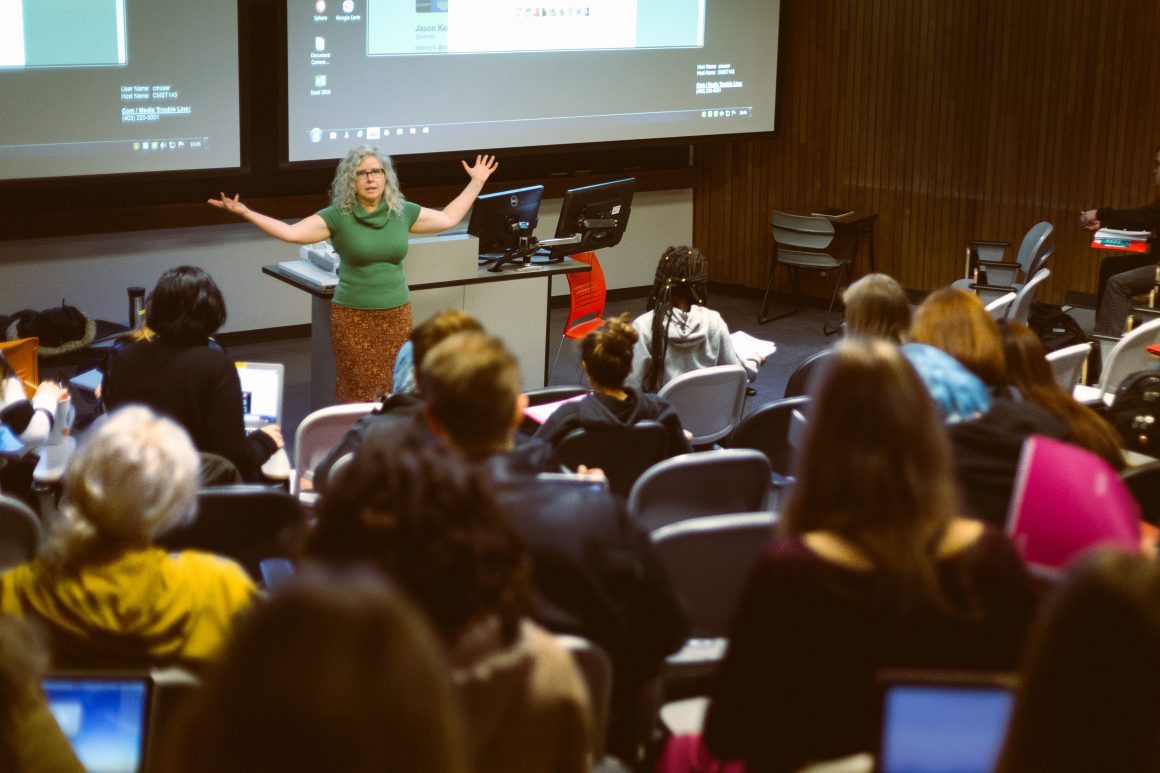
USRI overhaul moves forward
By Matty Hume, November 9 2018 —
At the Oct. 17 meeting of the Students’ Legislative Council, University of Calgary vice-provost of teaching and learning Leslie Reid presented feedback from a survey on improving the effectiveness of the Universal Student Ratings of Instruction (USRI) system alongside project co-ordinator Travis Klemp.
The survey process was launched in January of 2018 and is the first critical look at the USRI system since 2003, according to Reid.
“Since 2003, no one’s really taken a really good look at this and said, ‘Are we asking questions that we really know are important around student experience and teaching and learning? Are they meeting the campus community needs of students and academic staff?’ ” Reid said. “I thought this is a campus conversation we really need to have.”
Reid said the working group consulted with various campus community organizations, including the Students’ Union, the Graduate Students’ Association and the Faculty Association of the University of Calgary (TUCFA). According to Reid, feedback revolved primarily around changing to online response forms, changes to the questions presented on the form and the availability of the feedback to students.
The previous working group also recommended the use of online forms.
“There was a recommendation [in 2003] to move it online,” Reid said. “It was probably a bit early to move it online, because that didn’t last.”
The U of C first implemented the USRI system in 1998. According to Reid, many universities were doing the same to build teaching measurement tools.
“It was around the time when many post-secondaries were recognizing the need for student feedback to be really integrated into every course experience,” she said. “It was to give academic staff feedback from their students on what’s working, where there’s some areas for growth. The other purpose was to give department heads and tenure and promotion committees information about people’s teaching, because that’s a really important piece that is used to make decisions about high-stakes things for academics like tenure and promotion.
“The third reason for developing this instrument here on campus was to give students access to the USRI ratings from prior courses, so it could help some students make decisions about what courses they select,” Reid added.
With updated feedback, Reid hopes to deliver noticable changes to the USRI system within the next year and continue consultation moving forward.
“The idea would be to have a working group that reported to a General Faculties Council committee and the Teaching and Learning Committee makes a lot of sense so the working group would report to them,” Reid said. “We would want student, academic and TUCFA representation on that. And the role of that group would also be to consult because we don’t want to have this group just work in isolation, but really use the research literature on student evaluations and use what the campus community wants and needs.”
Reid said a draft of a new USRI system may be circulated as soon as the spring 2019 semester.
“We want to find a balance between making sure we don’t move so fast that we haven’t done good consultation and not moving so slow that it feels like we’re going nowhere,” she said. “I could foresee if we got a working group starting to come together at the end of this year and starting to work in earnest in 2019, we could start having a draft questionnaire out to the campus community for feedback by the spring of 2019.”
According to Reid, the significance of having effective instructor feedback for students and faculty should not be understated.
“Student feedback in understanding how their experiences are in classes is just so important for our academic staff to grow in their teaching,” she said. “To get this right is so important and to get everybody on board and excited about this is something I’m really looking forward to.”
